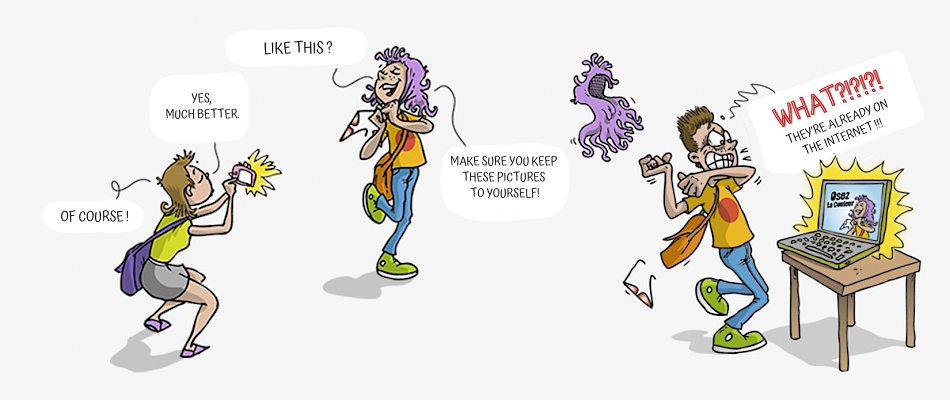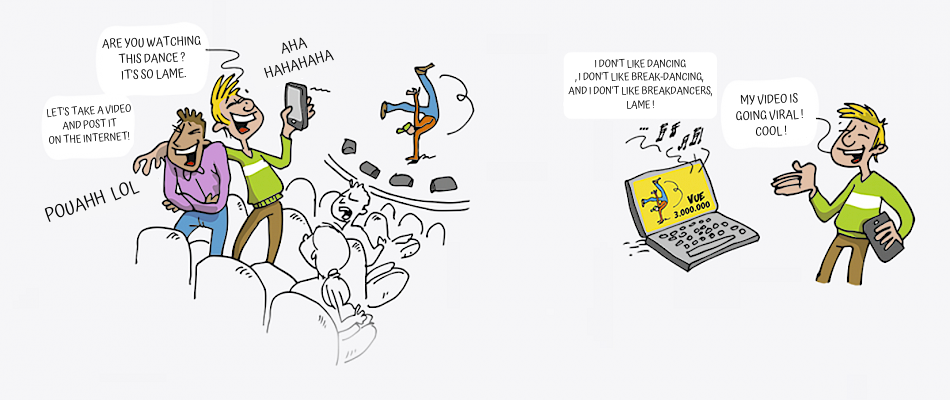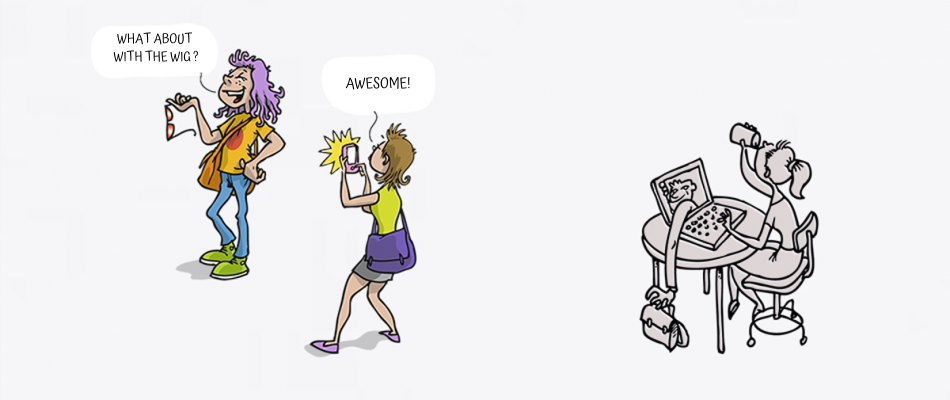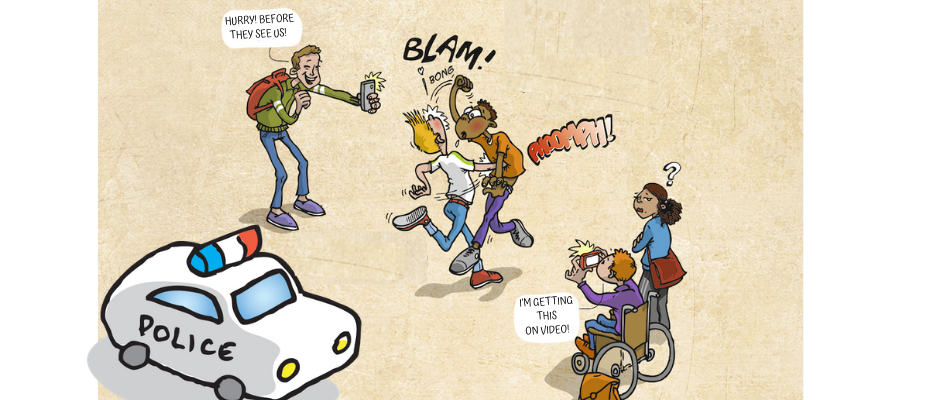Can you share a photo of someone online without permission?
How about a video of a show? Are you anonymous online?
Try this quiz to test your knowledge and learn about these topics and more.

Are you allowed to share a person’s picture on the Internet without their consent?
No. Every person has a right to their image. Therefore, they can object if the image is shared without their permission.
A person who hasn’t consented to having their picture shared can take legal action against the person who shared it and claim an amount of money as compensation for the harm done.

Are you allowed to film and/or share a video of a show you attended?
Most works (for example, shows, video games, software, films, images and music) are protected by copyright. Before sharing a copy, you must make sure you’re respecting the copyright. Usually, you can’t share a video of a show on the Internet unless you have the performer’s permission.
You’re allowed to take video of a show. But sharing a large portion of the show or the entire show on the Internet violates the performer’s copyright. The performer can ask you to take down the video or take legal action against you to be compensated for any harm suffered.
The Internet also includes Snapchat, Instagram and TikTok!

Are you anonymous on the Internet?
No. Most devices connected to the Internet (for example, a computer, tablet or cell phone) have an identification number (IP address). A person can be traced through their IP address.
People usually have the right to privacy, even on the Internet.
However, the courts can authorize information about a person to be shared if that person committed a crime or did something that caused injury.

Are you allowed to share intimate pictures of someone?
No. Every person has a right to their image, which means they can object if their image is shared without their consent. It’s even more serious if you post intimate images.
A person who shares intimate images of someone could be charged with two crimes. Images are often considered intimate if they show a person’s genitals or if that person is seen taking part in a sexual activity.
The crime of publishing an intimate image without consent occurs when you share an intimate image of someone without the consent of the person concerned.
If the person in the images is younger than 18, this could lead to charges of distributing child pornography.

Can you share a videoconference that was recorded without the participants’ consent?
The participants in a videoconference can see each other and talk over the Internet. A videoconference can be public or private. The consent of all participants is usually required before the conference can be shared.
Every person has a right to their image. Therefore, they can object if the image is shared without their permission. The consent of all participants is needed before a videoconference can be shared.
Sharing a videoconference could also be considered copyright infringement (going against the copyright to the videoconference).

Can you film a video of the police?
Yes.
You can film the police, but you can’t interfere with their work or try to harass them.


